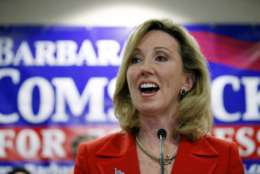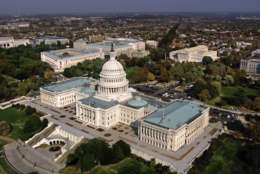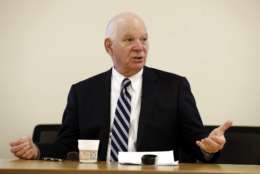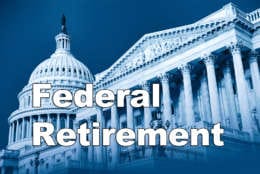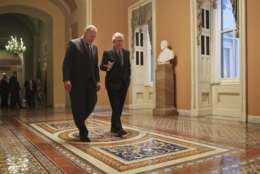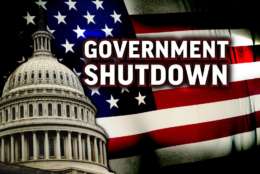NARFE
-
Rep. Barbara Comstock (R-Va.) again introduced a bill that would provide a federal paid parental leave program for employees. This time, the legislation would authorize up to 12 weeks of leave instead of six.
July 23, 2018 -
Guest columnist Tom Trabucco reflects on his 46-year federal career and the cast of characters he met along the way, as well as how he views the current set of civil service reform proposals.
July 09, 2018 -
The Trump administration wants to make the federal retirement plan more costly to workers and less valuable to retirees. But officials could probably "drain the swamp" of thousands of bureaucrats if they made the changes effective later rather than sooner.
June 14, 2018 -
In today's Federal Newscast, bipartisan legislation in the Senate would shorten the deadline for the Defense department to pay defense contractors who work with small businesses.
May 24, 2018 -
Federal News Radio explains each of OPM's proposed changes to the federal retirement system and details their outlook in Congress.
May 15, 2018 -
The Office of Personnel Management detailed several significant proposals that would impact the current federal employee retirement system.
May 07, 2018 -
How would proposed changes to your federal pension plan affect you? Find out when NARFE's Jessica Klement and Jill Talley join host Mike Causey on this week's Your Turn. April 11, 2018
April 10, 2018 -
What does the Senior Executives Association think about President Donald Trump's plans to reform the civil service system? Find out when SEA President Bill Valdez joins host Mike Causey on this week's Your Turn. April 4, 2018
April 03, 2018 -
When it comes to the safest investment option in their 401(k) plan, federal employees and retirees are split down the middle.
March 14, 2018 -
The Senate on Wednesday night confirmed both Jeff Pon and Michael Rigas to serve as director and deputy director for the Office of Personnel Management.
March 08, 2018 -
It's a scientific fact that 62 percent of all federal workers in the Washington area born before 1994 suffer from advanced déjà vu syndrome.
March 01, 2018 -
President Donald Trump's fiscal 2019 budget request includes several other recommendations that would change current retirement, health and other benefits for federal employees.
February 12, 2018 -
Unlike previous two-year, bipartisan budget agreements, the Senate's latest deal does not use higher federal employee retirement contributions as an offset to a $300 billion spending boost over 2018 and 2019.
February 08, 2018 -
When many federal workers consider retirement they also look for a place with no sales or state taxes.
January 25, 2018 -
Senior Correspondent Mike Causey says we dodged a couple shutdown threats last year but now the clock is ticking again and its set to go off January 19.
January 09, 2018

